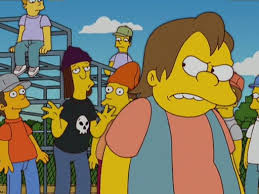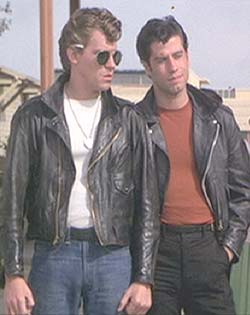
Why do bullies bully? It is an evergreen question that has age old assumptions to go along with them:
- Bullies are from broken homes
- Bullies are exposed to booze
- Bullies have a low self-esteem
A recent article on LiveScience reports on a study conducted in the UK which seems conclude that the assumptions about the motivations of bullies are actually pretty much spot on. The study shoes that bullies tended to be from single, or no parent homes, had been exposed to alcohol "in the last seven days," and tended to have a low self opinion.
The study was a modest one. Just 666 students at 14 schools. Not nearly as robust as the one reported in July by Science Daily. SD reported on a meta-study of 153 separate studies conducted over the course of the last 30 years. Similar conclusions resonate with the British study and also seem to chime the bells of conventional wisdom. Bullies are more likely to be boys than girls, and bullies tend to have very poor problem solving skills, and will have low academic performance.
An interesting divergence between the British and American studies concerns who actually gets bullied. In the British study, kids who perform poorly in sports and in academics are libel to fall into the cross hairs of the bully. The classic bullied-victim, at least in the American conception, is the high performing male student, the "nerd." However, many of the American studies in the meta-report included both American and European students, so it may be the relatively small sample size of the British report that accounts for this rather specific bully-bette noir.
The American study further teased out details about a sub-population of bullies known as the bully-victim.
The typical bully-victim ... also has negative attitudes and beliefs about himself or herself and others... . He or she has trouble with social interaction, does not have good social problem-solving skills, performs poorly academically and is not only rejected and isolated by peers but is also negatively influenced by the peers with whom he or she interacts,
The article doesn't speculate about this profile beyond this assertion, but it is easy to imagine a "pack" of rough kids with an alpha leader and a cadre of betas and omegas. Being among the "in-group" of bullies requires adhering to a hierarchy. The one above steps on the one below, with the lowest order getting the worst of the abuse.

Fictional examples of the bullied-bully are numerous. In Grease, Danny Zuko and Kenickie compete for the alpha-dog position within the T-birds. Danny is clearly alpha at the beginning of the story, but as he attempts to win the love of Sandy by trying out for the cross-country team (a violation of the anti-establishment posture of the T-birds), Kenickie seems ready to graduate from beta status at the moment of the big car race. A subsequent injury in Kenickie re-establishes Danny's position in the clique. Meanwhile, the three remaining T-Birds, Doodie, Sonny, and Putzie, remain un-reconstructed omegas through the duration of the story, paring up sexually only with their counterpart omega-femmes in The Pink Ladies.
Similarly, in the animated world of The Simpsons, the alpha Nelson has, from time to time, crossed swords with Jimbo for control of the alpha position, while perennial omegas Kearney and Dolph must satisfy their angst by picking on the "nerds" of Springfield Elementary. Nelson is often seen keeping his "boys" in line with punches to the stomach and other acts of brutality. Acts which then filter down to the omegas and, eventually, into the society of victims ranging from Bart Simpson to Milhouse and beyond.
-
What do bullies do? Do they serve some sort of social function? Presumably, we'd all be a lot better off if we got along and were tolerant of each other. Maybe even the bully would agree, if he thought that "model" was a worthwhile one to follow. It seems that Nelson, et al have little faith in the "program." Already let down by parental units, given academic opportunities which he assumes set him up for failure, and then positioned within a hierarchy that rewards violence with respect (or fear), the bully settles into his role a kind of soft enforcer of social conservatism. The bully punishes the fat boy, the too effeminate kid, the “butch” girl, and the brainy “nerd,” all of whom are also loathed passively by the society at large. The bully concretizes this resentment with his jibes and his closed fists. We punish the bully, yet on some level must recognize that he is only manifesting the intolerance that becomes reflected in the culture through skinny teen models, uber-masculine “dudes,” endless heterosexual porn imagery, and a complacent culture of rampant anti-intellectualism.
The bully is society’s Mr. Hyde, its dark reflection. His pig-honesty sees the hypocrisy in our denunciations of him. His perpetual detentions and demerits only serve to underscore an ugly truth about society’s true feelings about itself.
No comments:
Post a Comment